What you have is what I need! Collaborative Economy
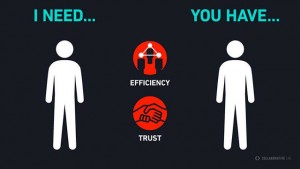
www.collaborativeconsumption.org
The master in Sustainable Development and Corporate Responsibility covers such vast areas of development, sustainability and overall citizenship. “What you have is what I need”; that sounds rather selfish than sustainable. But here is what it boils down to: “share what you have”. In a collaborative economy it’s all about collaborating by sharing and/or reusing of excess knowledge, goods and services, space, transportation, money and food. It’s a kind of We-commerce.
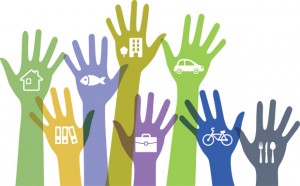
http://nextjuggernaut.com
Society is more digitally connected today than before. This makes a collaborative economy easier and more accessible to everyone. I believe the growth of digital access is due to two factors: geographical area of access to mobile phone and wider age range of use of mobile devices. We sometimes mistakenly suppose some countries have less access to mobile phones (in some parts of Africa the use is nearly as high as the U.S). Regarding the age range of users, my 9 year old niece owns her own tablet today. Well I’m sure a 2 year old plays games on a tablet or phone too, and my 70 year old mother connects with me on whatsapp, Facebook and uploads pictures of her garden so her daughters can keep track of her. I guess that the economic crisis has pushed creative entrepreneurs into finding cheap solutions to every day challenges. And so the sharing economy came about.
And it has been growing for the past years. Today over 25% of the U.S, Canada and the U.K. use some sort of Sharing mechanism. There is potential in this market. PWC estimates that the revenue of the shared economy could reach up to $335 Billion by 2025! To understand what we are talking about, let’s look at some examples of sharing economy: Wikipedia/ Facebook (we share knowledge), Alibaba (goods), Airbnb

airbnb
(accommodation), BlablaCar (ride sharing), Kiva (money-Loans that change lives) and Kitchen Surfing (food). What all these have in common, are that behind them there are digital platforms (mostly mobile Apps) so you can share, what you have with others, or use what others are offering. Don’t you love the idea? Why make a trip alone, when you can carry 3 more people with you (BlablaCar)? Less CO2 emissions for sure. See how we are getting more close to sustainability? Do you have too many left overs over and over again? Hire a kook (kitchen surfing)! Less waste means more sustainable. Money lending means more social development, empowerment and inclusion.
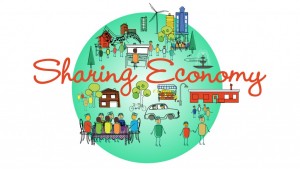
http://marketing-utile.fr/
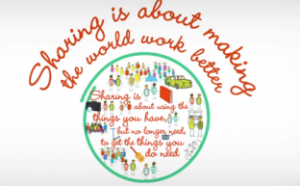
www.popsom.com
But, I’m a little concerned of stepping in the car with a complete stranger to make a 4 hour trip from Madrid to Zaragoza.
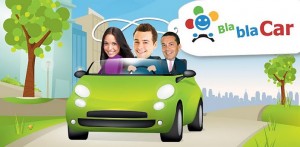
blablacar
Why? I can get kidnapped….!!! But the beautiful thing about sharing economy is that, besides being sustainable, it’s all about trust (and efficiency). I can see how my driver has been rated by other users, which can help me select a good driver trusting that I’ll get to Zaragoza safely, faster than with the bus and cheaper than with the train.
Sharing or using shared services could become part of your lifestyle. Meet Logan Whiteside. She rents her clothes at Le Tote, her entertainment comes from Netflix, she travels with Uber and cooks with the help of Hello Fresh. I admire her commitment.
To end I would like to quote my teacher, Daniel Truran:
“Collaborative or Sharing Economy means BlablaCar without cars, Alibaba without inventory and Airbnb without rooms.”
And indeed, who needs tangibles, when we can just share what we have and coexist with our regional taxi service, your favourite garment store and the 5 star hotel at the beach? Hopefully all the examples I’ve given have convinced you that a Sharing or Collaborative economy is transforming the society, socially, environmentally and economically.
P.S. Lucky for me, in just two months I’ll be moving to Europe’s first Shareable City.
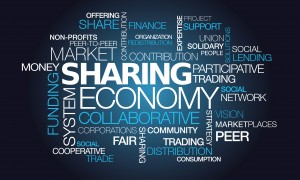
www.askfortask.com
Sources:
1. “Why the collaborative economy is changing everything”. Forbes Magazine. Consulted on May 12th, 2015. Available here.
2. “5 start-ups changing the economy in Hong Kong”. Collaborative Consumption. Consulted on May 12th, 2015. Available here.
3. “Cell Phones in Africa: Communication Lifeline”. Pew Research Center. Consulted on May 12th, 2015. Available here.
4. “Amsterdam, Europe’s first shareable City”. Collaborative consumption. Consulted on May 13th, 2015. Available here.
5. “The future of sharing economy depends on trust”. Forbes Magazine. Consulted on May 13th, 2015. Available here.
6. “Porqué rento todo desde mi ropa hasta mis joyas?”. CNN en Español. Consulted on May 13th, 2015. Available here.
7. The Sharing economy: sizing the revenue opportunity. PWC United Kingdom. Consulted on May 13th, 2015. Available here.


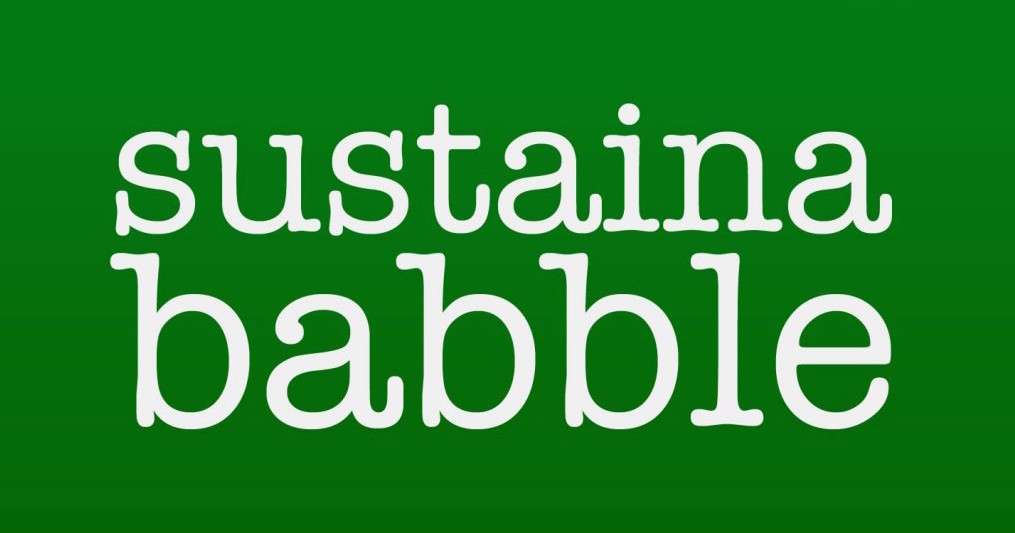





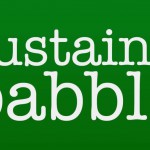


Leave a Reply
Want to join the discussion?Feel free to contribute!